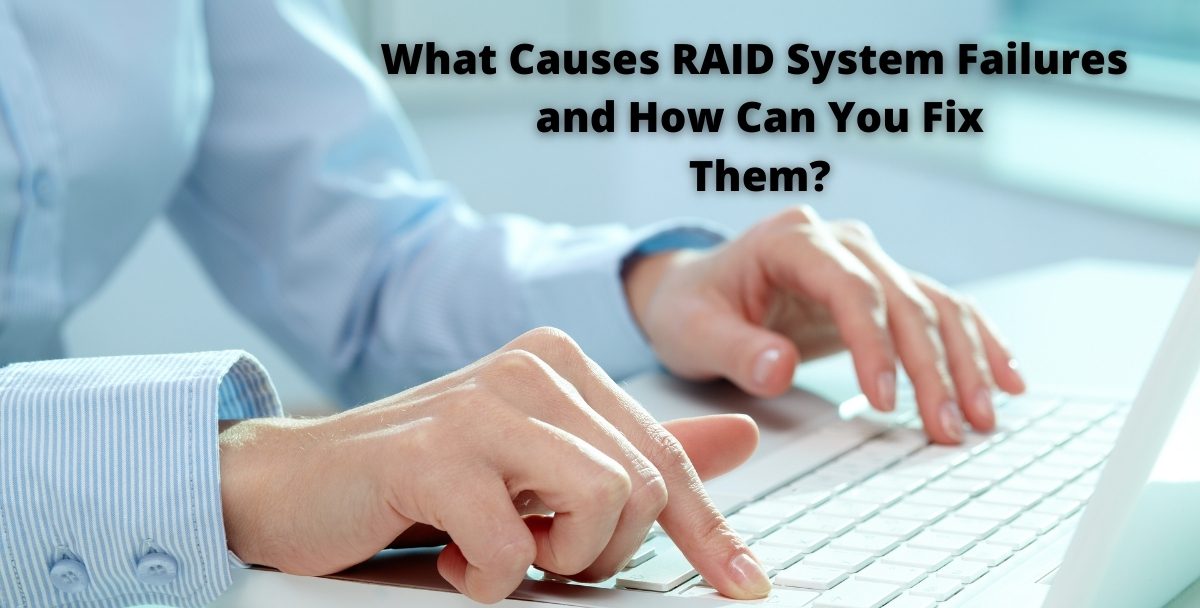What Causes RAID System Failures and How Can You Fix Them?

RAID stands for Redundant Array of Inexpensive (or Independent) Disks, which essentially combines two or more hard drives to form one storage device with a much larger capacity. RAID comes in different RAID levels, tailored to suit different needs and they combine different techniques such as mirroring, striping and parity storage to create larger data storage.
Thank you for reading this post, don't forget to subscribe!While RAID provides many advantages, just like any other hardware, they can break down from time to time and lead to a number of problems- since the amount of data stored in RAID is very extensive and vital for the user. RAID configurations are usually considered safer than other storage devices but even they can break down. RAID data recovery is possible, but first, it is important to know what causes RAID system failures, to find the easiest method to recover your data.
How Can You Fix RAID System Failures
- Server problems: if the connected server crashes due to any reason, then the array will not be accessible. This is one of the most common causes of RAID failure.
- RAID controller failure: almost every RAID server uses a single controller to direct the array. The controller may stop functioning properly due to a host of reasons such as power failure or technical issues. In this case, the RAID system will not work.
- Missing Partitions: partitioning is a technique used to ensure that a RAID system works more efficiently by minimising speed loss and increasing functionality. However, it is possible for the partition disks to become corrupted, which can make the system not recognize them any longer. This can also lead to RAID failure.
- Multiple Disk failure: the whole point of a RAID system is to ensure that the whole set-up does not crash if only one disk stops working. However, in this event, the other disks are left more vulnerable to failures which can completely undermine the system. If one disk fails, then you should immediately fix it first without relying on the others in the network, since all your data will be lost in case there is a system breakdown caused by multiple disk failure.
- Problems in rebuilding RAID volume: in case your system has encountered an error and you are trying to fix it, but the RAID volume is not rebuilt correctly, there may be problems with accessing your data and the system might break down once more.
Result in RAID System Failure
All these may result in RAID system failure and you can perform RAID data recovery to ensure that your files are safe. To be honest, there is not much you can physically do if the RAID system has broken down completely anyway, but there are certain steps you can follow to minimise the damage and try to recover your files as soon as you can. As such, a RAID failure requires expert troubleshooting assistance, sine it is a complicated network of many storage devices. You cannot fix it all by yourself unless you are a professional, but there are several steps you can follow to ensure that you do not end up doing more damage.
- The first thing that you should consider should be protecting your remaining data and recovering the files that have been lost. Instead of trying to fix the RAID system first, if you focus on this, your job will become infinitely easier.
- Turn off the array with immediate effect. If you keep running a degraded array, you will only do further damage and lose more files.
- It is not advised to try and repair the disk physically on your own. A RAID system needs to be cleaned and repaired in a very clean and dust-free environment as even minute dust particles can destroy the disks beyond repair, and you will not be able to perform RAID data recovery.
- Go through the events that took place right before the system crashed. If you heard any weird noises or saw strange commands, changes in speed or any surges in power, this information may help to diagnose the real problem behind the failure.
- It is imperative to contact a data recovery specialist as soon as this happens, since delays may result in irreparable data loss. While it is almost always possible to perform RAID data recovery, the exact percentage of data recovery can only be determined after understanding the extent of damage.
